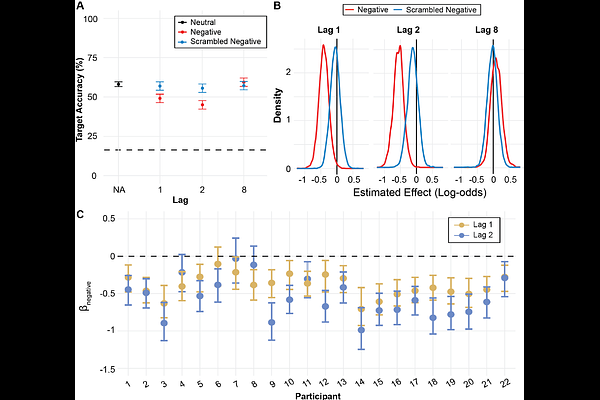The temporal and perceptual characteristics of emotion-induced blindness

The temporal and perceptual characteristics of emotion-induced blindness
Alarie, M. E.; Yang, G. H.; Quinn, L. R.; Lin, T.; Asaad, W. F.
AbstractAttentional capture by emotionally salient stimuli is adaptive, permitting identification of possible threats; however, an excessive bias towards emotional stimuli can interrupt goal-directed behavior. This is especially relevant in psychiatric disease, where severe emotional distress can interfere with daily function. As such, understanding the mechanisms by which emotional stimuli compete for attentional resources is a critical area of investigation. Previous studies using rapid serial visual presentation (RSVP) paradigms observe that emotional distractors disrupt the detection of subsequent stimuli, referred to as emotion-induced blindness (EIB). Our study expands upon this work, characterizing how temporal and perceptual factors shape the emergence and intensity of EIB. Contrary to previous assumptions regarding temporal dynamics of EIB, we found that effects of emotional distractors persisted across prolonged image presentation durations. Further, we investigated the extent to which the depth of distractor processing influences EIB using a distractor recall task. While recall was predictive of EIB magnitude, a significant effect of emotional distractors on target detection was nonetheless present even without conscious recall of the distractor. These findings demonstrate the robustness of the EIB effect in RSVP in the context of temporal and perceptual manipulations.